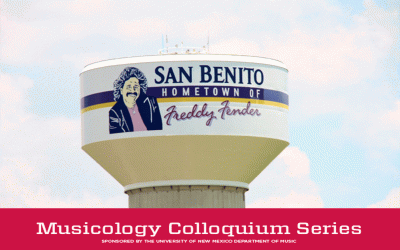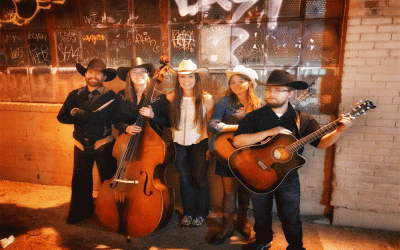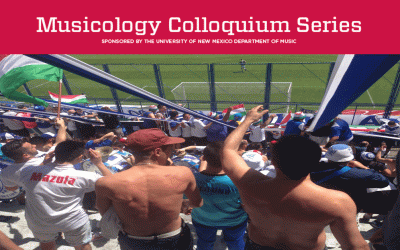Musicology Colloquium Series
Sponsored by The University of New Mexico Department of Music & The Latin American and Iberian Institute
Latin American and Iberian Institute (LAII) Conference Room
Thursday September 12, 2019
2:00-3:30pm
Sones de allá para acá: Son Jarocho from Mexico to USA
Name of presenter: Doris Careaga Coleman
Talk Description:
Son Jarocho is a genre of traditional Mexican music performed in southern Veracruz that has gained prominence in Chicanx communities in the United States. In this talk we will analyze the origins, rhythms, musical forms, and dances both in Mexico and the United States.
Biography:
Dr. Doris Careaga Coleman teaches in the Department of Chicana Chicano Studies. In her academic courses she illuminates Afromexican literature, history, and culture. Her areas of research include son jarocho, culinary arts, and literature and theory related to Afromexican cultural studies. Dr. Careaga Coleman is the author of La Cocina Afromestiza en Veracruz (1995 (republished in 2004 and 2006)), La Cuenca del Papaloapan (1996), El Exótico Sabor de Veracruz (2000), and La Cocina Tradicional de Jalcomulco (2000 (republished in 2017)). Her most recent book is La culinaria afrodescendiente en Tamiahua: un discurso para iluminar a los afrodescendientes mexicanos (2018).
“Reclaiming ‘the Border’ in Texas-Mexican Conjunto Heritage and Cultural Memory”
The Texas border town of San Benito is the subject of this talk which examines how memory and legacy operate within a community of “self-appointed” cultural brokers and a local municipality inspired by capitalist notions of urban development, economic growth and cultural tourism.
UNM Music Students and Community Members to Perform on KUNM 89.9 on 5/11 @7 pm
The UNM Honky Tonk Ensemble, an ensemble that teaches students how to play in a band and that emphasizes the style of classic country music from the ’50s, ’60s and ’70s, to come into KUNM’s Studio A to do a studio session of songs they’ve performed over the course of the semester
Embodying Fandom: Chanting in Twentieth-Century Argentine Soccer
Argentine soccer fandom involves a nuanced set of bodily practices and a vast repertoire of chants based on radio hits and broadcast advertisement. This talk demonstrates how chanting brings together sounds and bodies in an affective public practice that incites intense feelings of social cohesion and belonging meaningful beyond what is being said with words.



